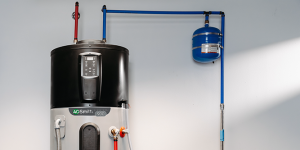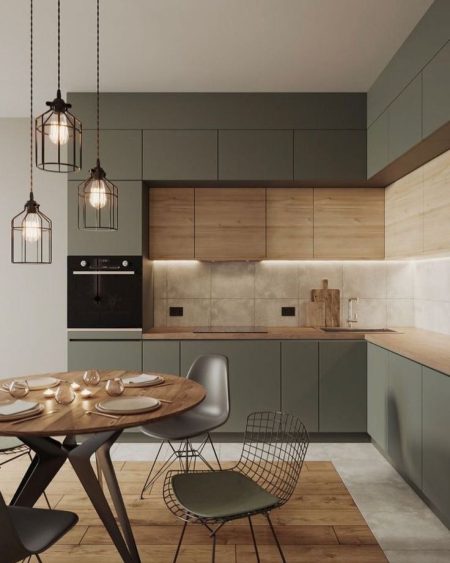Getty Images/iStockphoto
High mortgage rates, low inventory, and elevated home prices have left many Americans postponing their homebuying plans. On the upside, however, most who bought homes over the past few years have seen a sizeable boost in their equity.
If you’re looking to make home improvements that’ll further boost your home’s value — or help maintain it when prices fall — a home equity loan or line of credit can be a good option. Both allow you to access a large amount of money, and when you use it for qualifying home improvements, the interest may even be tax deductible. Plus, you can get competitive interest rates when you borrow from home equity today.
But which home improvement projects offer the best return on your investment, and which should you avoid? Here’s what experts have to say.
Start comparing home equity rates you can qualify for here today.
Four projects that will grow your home equity
First, here’s a look at four projects that experts say will increase your home equity.
1. Kitchen remodels
Kitchen remodels or upgrades tend to not only have a high rate of cost recovery, but also lead to high satisfaction levels.
“I once oversaw a remodel where we incorporated energy-efficient appliances, modernized countertops, revamped cabinets and introduced a more open layout,” says Roman Smolevskiy, owner of A+ Construction & Remodeling, “The project noticeably boosted the home’s market value, reiterating the fact that investing in the kitchen — typically the heart of a home — can recoup between 60% and 80% of the cost.”
Data from the National Association of Realtors (NAR) 2022 Remodeling Impact Report aligns with Smolevky’s estimate, reporting a 75% cost recovery estimation on complete kitchen renovations. Additionally, this project type earned a 9.8/10 “Joy Score” from the report, which measures the happiness homeowners experience as a result of the renovation.
2. Energy-efficient upgrades
Energy-efficient upgrades can not only increase a home’s value but save homeowners on their energy costs each month.
“Energy efficiency may not strike as an exciting feature, yet it holds immense potential. Actions like sealing cracks, ensuring proper insulation, and fitting Energy Star-rated windows can lead to considerable savings and attract the growing segment of eco-conscious buyers,” says Eric Bramlett, a realtor and the owner of Bramlett Residential.
For example, the 2023 Cost Vs. Value Report by Remodeling found that an HVAC conversion/electrification offered a cost recovery rate of 103.5%.
3. Bathroom remodel/addition
Bathroom remodels also tend to be value boosters — whether you want to undergo a full renovation or make smaller changes like new fixtures or fresh caulk.
“My team and I have found that a tastefully remodeled bathroom or a strategically added one can bring about an attractive ROI. One particular project involved transforming a dated bathroom with energy-efficient fixtures, a walk-in shower, and a double sink vanity. The home’s value skyrocketed, with an estimated cost recoupment of around 70%,” says Smolevskiy.
4. Add usable living space
If you’re willing to take on a substantial project, incorporating more usable living space in your home can be a good investment.
“Be it a basement conversion, an attic transformation, or a deck addition, creating more usable space is a surefire value booster,” says Smolevskiy. The NAR report found that converting a basement into a living area offered 86% cost recovery, while attic conversions offered 75%.
If you’re focusing on your outdoor space, Remodeling reported a 50% cost recovery on new wood decks and a 39.8% recoup of costs on composite decks. “Whether you opt for wood or composite, a well-crafted deck offers an irresistible extension of indoor living space to the outdoors. It’s a drawcard for those buyers who love the idea of a relaxed, open-air lifestyle,” Ryan Fitzgerald, a realtor and the owner of Raleigh Realty.
Ready to start working on a project? Compare today’s top home equity rates now!
Four projects that are unlikely to boost your home equity
Now that we’ve covered four projects that are equity boosters, here are four that can be money pits.
1. Overly personalized renovations
Renovations that are overly personalized to any individual taste can be problematic, because they don’t appeal to the majority of buyers.
“While it’s great to showcase your unique style, eccentric paint colors, unconventional flooring choices or theme rooms can limit the appeal to buyers,” says says Michael Winkler, the co-founder and chief strategist at Sell Home Today. Opting for timeless, neutral designs ensures broader market appeal, preserving your home’s value.”
2. High-end upgrades in a mid-range neighborhood
Another questionable investment is making high-end upgrades to homes in mid-range neighborhoods. Make sure you’re familiar with your surrounding market and what buyers might expect.
“I’ve witnessed a few instances where homeowners made luxurious upgrades in a mid-range neighborhood,” says Smolevskiy, “Unfortunately, these rarely recoup their costs.” He explains that potential buyers often aren’t willing to pay a premium for an unusually upscale feature.
3. Extravagant landscaping
While landscaping can be a worthwhile investment, there’s a fine line between just enough and too much.
“High-end landscaping is another project that can often fail to provide a good return. While curb appeal is important, buyers may not value elaborate gardens or exotic plantings as much as you do. They could even see it as too much work to maintain,” says Shri Ganeshram, CEO and founder of Awning.
He adds, “Instead, focus on creating a clean, well-maintained outdoor space that any buyer could easily customize to their liking.”
Start comparing home equity rates that can help you complete your renovation or home project today here.
4. Swimming pools
Thinking of adding a swimming pool to your backyard? Pools can greatly enhance a home and backyard but aren’t big value boosters.
“Contrary to popular belief, pools often don’t yield a high return due to maintenance and safety concerns. I oversaw a project that added a pool to a property, expecting it to increase value. Unfortunately, buyers viewed it as a potential liability, limiting the pool’s ROI,” says Smolevskiy.
Should you tap into your home equity and invest in your home?
Investing the funds from a home equity loan or HELOC into home improvement projects can be a useful way to enhance your home and increase its market value.
These loans are secured by your home, so you may be able to score better interest rates than you would with personal loans or high-interest credit cards. Make sure you know all the terms of your financing options before you decide. And remember, to get the best value from your home equity, you’ll want to make sure your renovations qualify for eligible tax deductions with the IRS, and that you choose projects with high cost recovery rates.
“The key factor to consider when determining which projects are the worst for home value is whether they align with the preferences and expectations of potential buyers,” says Samantha Odo, a real estate agent and the chief operating officer at Precondo. “It’s important to prioritize projects that are widely appealing and offer a good balance of functionality, aesthetics, and market demand,” she adds.
Find out the best home equity rates you can qualify for and start comparing offers now.
Read the full article here














